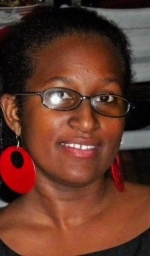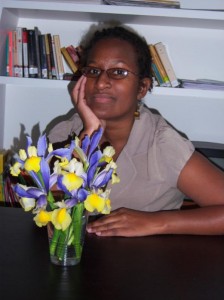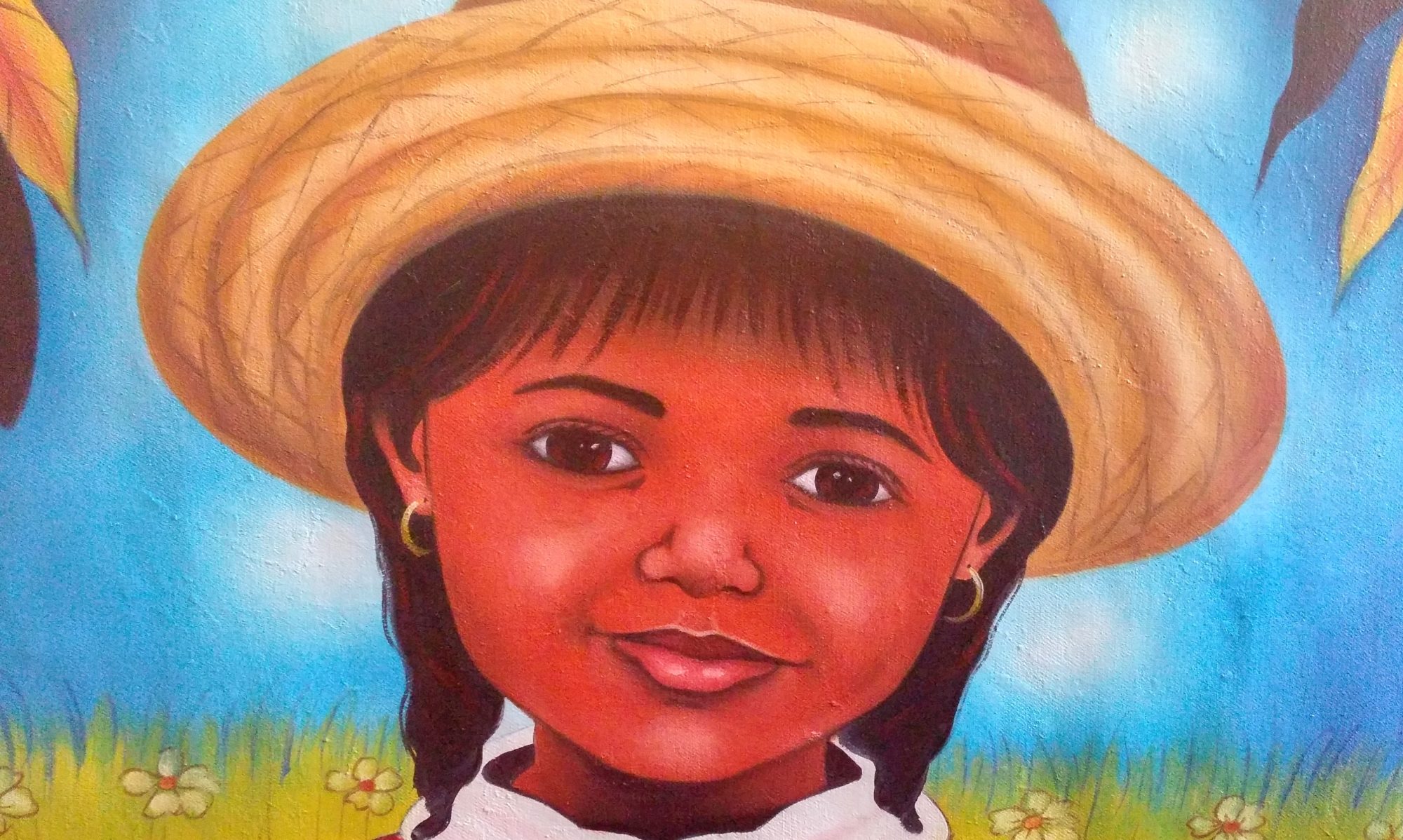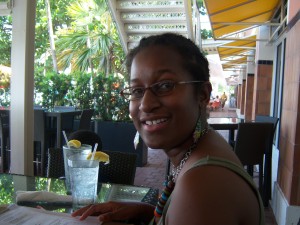“How did you come to the United States?” is a common question folk like to ask. Most of the time, they expect a story that holds bits about man-eating sharks and guns going off in the middle of the night. Nadève Ménard’s “How did you get to the United States?” holds neither. Check out her story–in her own words.
Nadève Ménard: I was born in Brooklyn, NY. I seem to recall that the hospital room I was born in had green walls, but my mother says I’m lying.
I have one sister. I guess as kids we sometimes got along, and sometimes didn’t– like most siblings, I imagine. As we get older, though, I feel like we become closer every day.
I had a few childhood homes, and they were each special to me for different reasons: I think one thing they all had in common is that we were always surrounded by extended family. I’m not sure I could ever live without a few cousins or an aunt nearby.
No Longer a Minority: A Powerful Memory
 Haitians at home and in the dyaspora carry with them volumes of memories. You can see those memories in our books, songs, and brilliant canvases. Nadeve’s shares one powerful recurring image. See if you can relate:
Haitians at home and in the dyaspora carry with them volumes of memories. You can see those memories in our books, songs, and brilliant canvases. Nadeve’s shares one powerful recurring image. See if you can relate:
Nadève Ménard: One image that comes to my mind pretty regularly is the moment I realized what it meant to live in a black nation.
I was sitting in the backseat of my parents’ brown Toyota station wagon one day, stuck in traffic in the Nazon neighborhood of Port-au-Prince and I suddenly realized that everyone was black.
I think I was probably eleven years old at the time. I remember thinking to myself: the president is black, the prisoners are black, the police officers are black, the teachers are black.
It was a very powerful moment – realizing that I was no longer a minority.
Haiti & Post-Quake Reconstruction
Nadève Ménard was in hart-hit Delmas on January 12, 2010, preparing for a literary festival to be held that same week. Her daughter was with her as the ground under their feet quaked so much that an estimated two-hundred and fifty thousand lives would be lost. The super-quake that struck Haiti caused irreparable damage, but Nadève Ménard’s life purpose remained in tact. When asked about her role in Haiti’s reconstruction, here is what she had to say:
 Nadève Ménard: So much goes back to education. I see myself continuing to teach. I see myself being present, making my voice heard, staying vigilant. I’m not sure my role will be much different from what I was doing before the earthquake, to be honest.
Nadève Ménard: So much goes back to education. I see myself continuing to teach. I see myself being present, making my voice heard, staying vigilant. I’m not sure my role will be much different from what I was doing before the earthquake, to be honest.
I was the kid who always loved school and always loved to read, so teaching feels like a natural fit. I also have to say that there are many, many writers and educators in my family, so it might be hereditary.
Today I teach literature at Ecole Normale Supérieure, one of the branches of Haiti’s State University. I recently published a new book, Écrits d’Haïti, but nothing makes me feel as good as the feedback I get from my students. When one of them tells me that I’ve made a difference in their lives, in their careers — nothing can beat that.
Help VoicesfromHaiti celebrate the creative Haitian spirit of this fierce, front-line educator. We’re proud of you, Nadève Ménard! Kenbe djanm!
Keep up with Nadève by checking out her blog, Tande.



One Reply to “Nadève Ménard: No Longer a Minority”
Comments are closed.